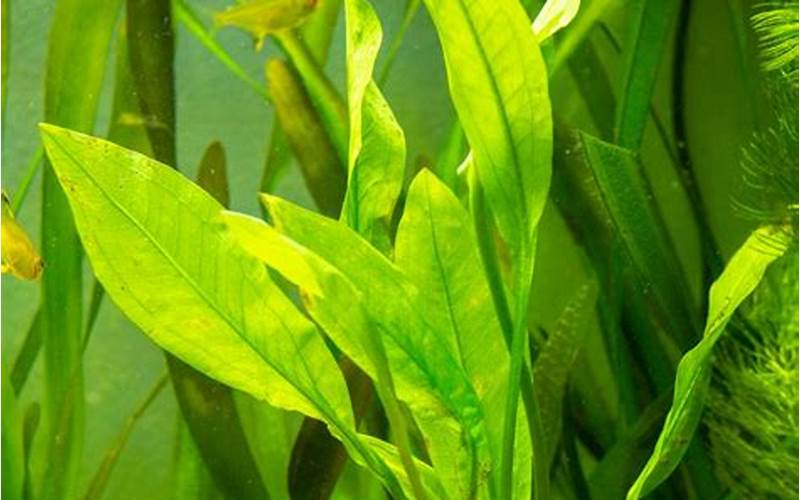Best Aquarium Plants To Reduce Nitrates
Aquariums are a beautiful addition to any home or office. They are a great way to add life and color to a space while also providing a relaxing and peaceful environment. However, maintaining an aquarium can be a challenge, especially when it comes to keeping the water clean and healthy for the fish and other creatures that live in it. One of the biggest challenges aquarium owners face is managing nitrate levels in the water. Nitrate is a byproduct of fish waste and excess food, and high levels of nitrate can be harmful to fish and other aquatic life. One of the best ways to reduce nitrate levels in your aquarium is to add plants. In this article, we will discuss the best aquarium plants to reduce nitrates.
Anubias
Anubias is a popular aquarium plant that is known for its ability to absorb excess nutrients from the water, including nitrates. It is a slow-growing plant that is easy to care for and does not require a lot of light or nutrients. Anubias can be grown in a variety of conditions, including low-light and low-nutrient environments. It is also a great plant for beginners, as it is hardy and can adapt to different water conditions.
Hornwort
Hornwort is a fast-growing aquatic plant that is known for its ability to absorb excess nutrients from the water, including nitrates. It is a great plant for aquariums, as it provides a lot of oxygen and helps to maintain a healthy environment for fish and other aquatic life. Hornwort is also a great plant for beginners, as it is easy to care for and can adapt to a variety of water conditions.
Java Moss
Java moss is a popular aquarium plant that is known for its ability to absorb excess nutrients from the water, including nitrates. It is a fast-growing plant that is easy to care for and can adapt to a variety of water conditions. Java moss is also a great plant for providing hiding places for fish and other aquatic life, as it grows quickly and can be used to create natural-looking habitats.
Duckweed
Duckweed is a floating aquatic plant that is known for its ability to absorb excess nutrients from the water, including nitrates. It is a fast-growing plant that is easy to care for and can adapt to a variety of water conditions. Duckweed is also a great plant for providing shade and cover for fish and other aquatic life, as it floats on the surface of the water and creates a natural-looking habitat.
Water Wisteria
Water wisteria is a popular aquarium plant that is known for its ability to absorb excess nutrients from the water, including nitrates. It is a fast-growing plant that is easy to care for and can adapt to a variety of water conditions. Water wisteria is also a great plant for providing hiding places for fish and other aquatic life, as it grows quickly and can be used to create natural-looking habitats.
Cryptocoryne
Cryptocoryne is a popular aquarium plant that is known for its ability to absorb excess nutrients from the water, including nitrates. It is a slow-growing plant that is easy to care for and can adapt to a variety of water conditions. Cryptocoryne is also a great plant for providing hiding places for fish and other aquatic life, as it grows slowly and can be used to create natural-looking habitats.
Amazon Sword

Amazon sword is a popular aquarium plant that is known for its ability to absorb excess nutrients from the water, including nitrates. It is a fast-growing plant that is easy to care for and can adapt to a variety of water conditions. Amazon sword is also a great plant for providing hiding places for fish and other aquatic life, as it grows quickly and can be used to create natural-looking habitats.
Conclusion
Adding aquarium plants to your tank is a great way to reduce nitrate levels and maintain a healthy environment for your fish and other aquatic life. The plants listed above are some of the best aquarium plants to reduce nitrates, and they are all easy to care for and can adapt to a variety of water conditions. By adding these plants to your aquarium, you can create a natural-looking habitat that will provide your fish with the ideal environment they need to thrive.